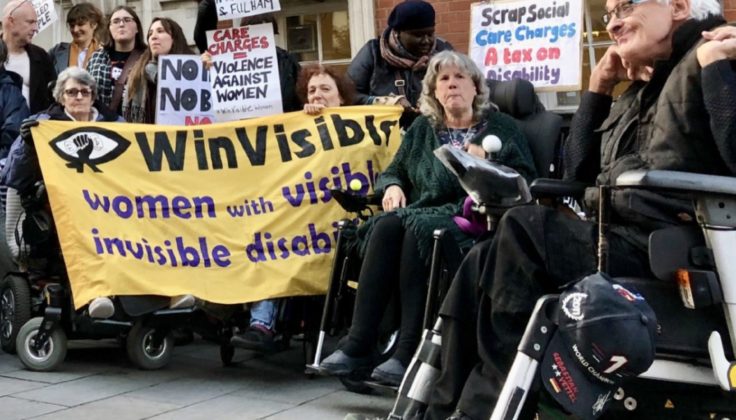Briefing for DDPOs – Government’s health and social care reforms
Summary of the recent social care reforms and the impact on Deaf and Disabled people

On the 7th September 2021, the government made the following announcements concerning social care reform
- Introduction of a Health and Social Care levy. The tax will begin as a 1.25 percentage point rise in National Insurance from April 2022, paid by both employers and workers
- Introduction of a cap on personal care costs. From October 2023, there will be an £86,000 cap on the amount anyone in England will need to spend on their personal care over their lifetime. This means after a person paid £96k for their personal care, they will receive care for free. Both remaining assets and income will be disregarded.
- Raising the capital threshold in social care means-test: Currently, people who have assets more than £23.350 have to pay for their care in full, and those with assets from £14k to £23250 have to pay a tariff income. The government proposes to raise those. From October 2023, savings of up to £20k will be disregarded in the means test, and tariff income will apply to savings from £20k to £100k. People with assets over £100k will have to pay for their care in full, until their assets are lower or reached the cap. It is important to remember that people with assets below £20k will have to pay for care out of their income. This mainly affects people on benefits as earnings from employment are disregarded.
- Unfreeze the Minimum Income Guarantee, which means the minimum amounts of income people should be left with will rise along with inflation from April 2022.
- Deliver more comprehensive support for the social care system, particularly for social care staff. This includes training opportunities, mental health and wellbeing support, reforms to improve recruitment.
- Improve the integration of health and social care systems.
The government promised more information on the following aspects in the Social Care White Paper later this year:
- Take steps to ensure that the 5.4 million unpaid carers have the support, advice and respite they need, fulfilling the goals of the Care Act.
- Invest in the Disabled Facilities Grant and supported housing, as well as exploring other innovative housing solutions to support more people to live independently at home.
- Improve information for service users to help them navigate the care system and understand the options available to them.
- Introduce a new assurance framework and support improvement in the system, to ensure Local Authorities are delivering on their obligations for users.
You can read the full briefing here Briefing for DDPOs – Social Care Reform